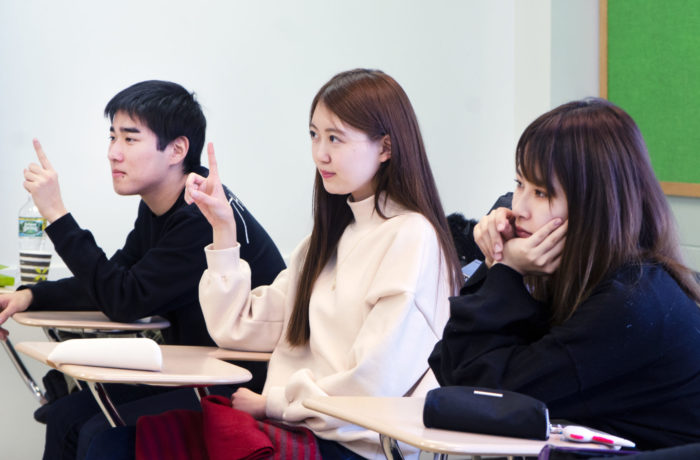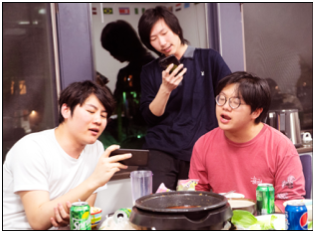By Habeba Ramadan Ali
Arts & Culture Editor
Every Wednesday afternoon, the lobby in St. Edmund’s hall fills up with students hailing from Egypt to England, and you can hear a variety of languages spoken. Coffee hour, put on by the Applied Linguistic department and ALD assistants that help prepare, serve and host the event, is intended to bond the relationship between Americans and international students, But there’s a problem. American students rarely attend the event. The atmosphere Every Wednesday noon is full of faces from other parts of the globe, but is lacking the American students’ participation.
During every coffee hour event, multiple traditional things happen. One of them is that those who host the event usually talk a bit about their traditions and what food is served to the attendees and the different ways of eating the food.
A song related to the type of culture is played and a welcoming atmosphere from the host is shared with those who want to deepen their understanding of the culture in general. Usually the theme differs every Wednesday according to those who would be willing to present their culture and share their food.

“Coffee hour break is a place where different cultures are gathered to unify, representing a part of their identities,” said Rick Gamache, who teaches in the Applied Linguistics department and serves as advisor to many international students.
“Aiming for a better sense of humanity and diversity is what the coffee hour break objectively created. I wish American students knew how cool and engaging it is to be part of a whole community where it is all about getting to know the wonders and beauty of each culture,” Makoto Sato ’22, a transfer student.
At last week’s international coffee hour, three American students attended. One student Seth Bonvouloir ’22, said “We are taught from a young age that foreigners are supposed to adapt to our needs instead of the opposite. Being in that environment make them less willingly to make the effort to be friends with non-American people,” He added that there is a Stigma against foreigners who do not know English well make them rather spend time studying than making an effort to try and communicate with International students.

“Coffee hour took place 50 years. It started by the wives of some undergraduate faculty where they make bakings and coffee which broadly brought people together. Originally, the coffee hour place was on the north campus. Initially, it started off as a way to bring people together. It was not really called the international coffee hour back then. I believe that food and coffee tend to bring people together and build friendships and that was the main purpose of the event from the beginning,” said Jacqui Samale, Coordinator for international student services.
“One of the reasons I think there isn’t enough engagement is the time of the event. A lot of students have classes that create a challenge for them to engage and participate in the event,” said Jacqui Samale.
“Even though ‘coffee hour’ is a traditional event almost no Americans come or have heard of this event,” said Sonoka Hashida, transfer student.“International students are greatest in number, some Local students come but not often. I would like to see more thou. My hope is that the ‘international’ part the title of the event is not misleading but instead inclusive, they are all welcome,” Jacqui Samale, coordinator for international students services.
“Coffee hour is a way to bridge our cultures in this campus,” Jacqui Samale, Coordinator for international student services.

“I believe that Americans are not the ones to blame for not participating. American students might think that they can`t connect with international students because they fear the rejection they might receive from them,” said Makoto Sato ’22, a transfer student from Japan. She believed that coffee hour event for her is a home where diversity is seen and heard.


